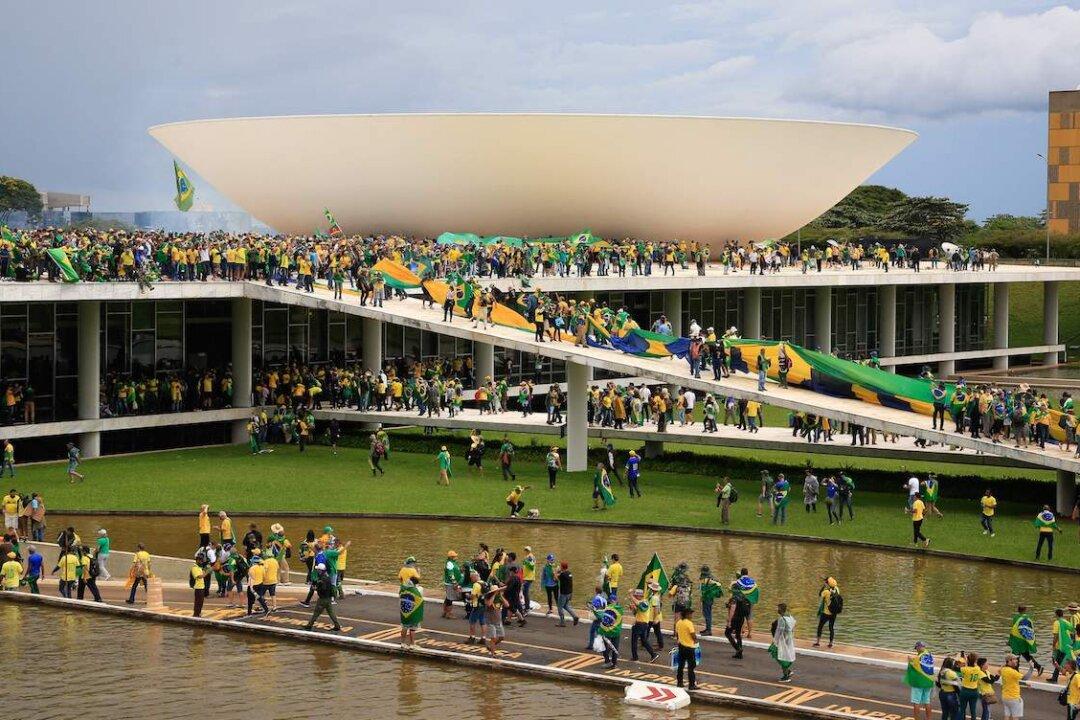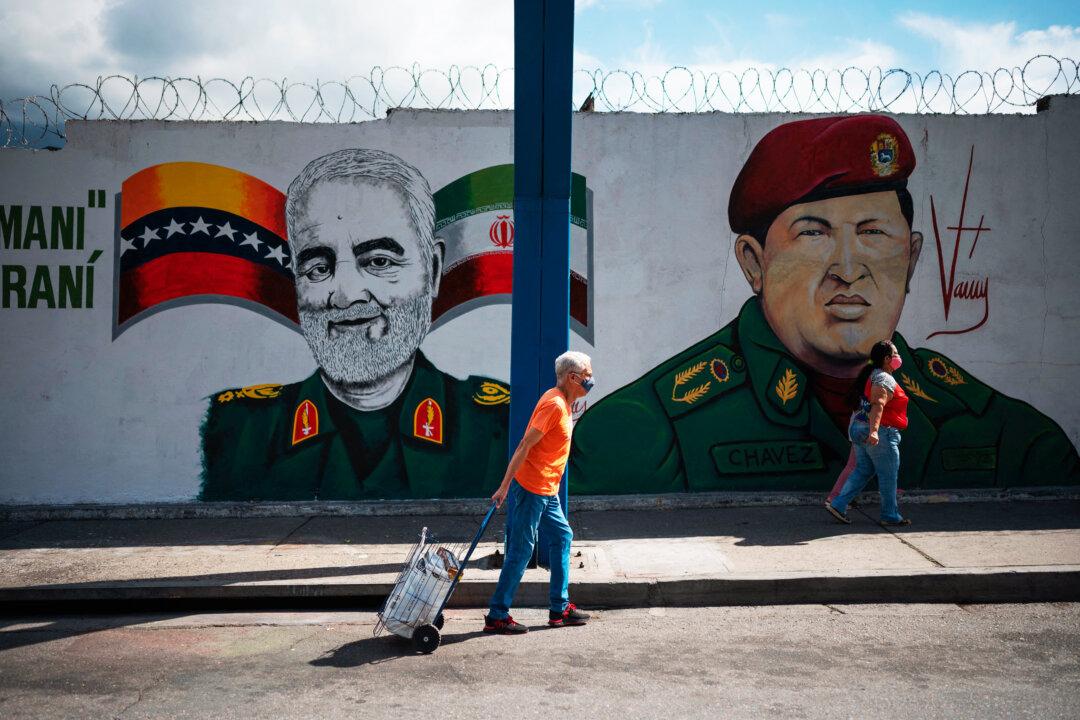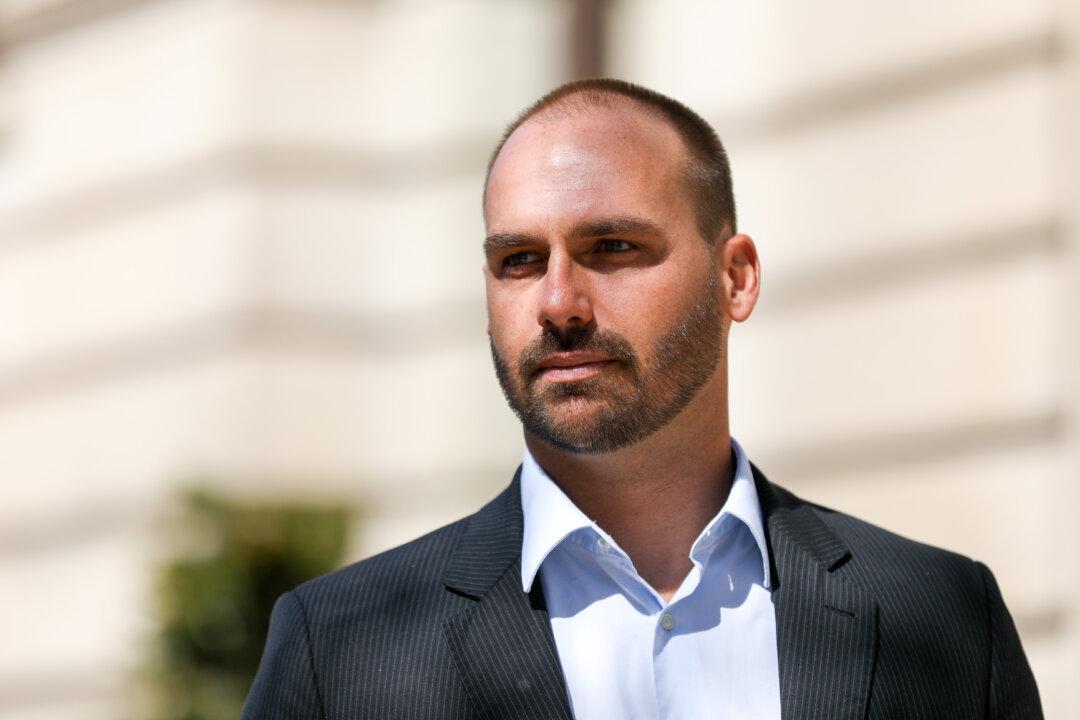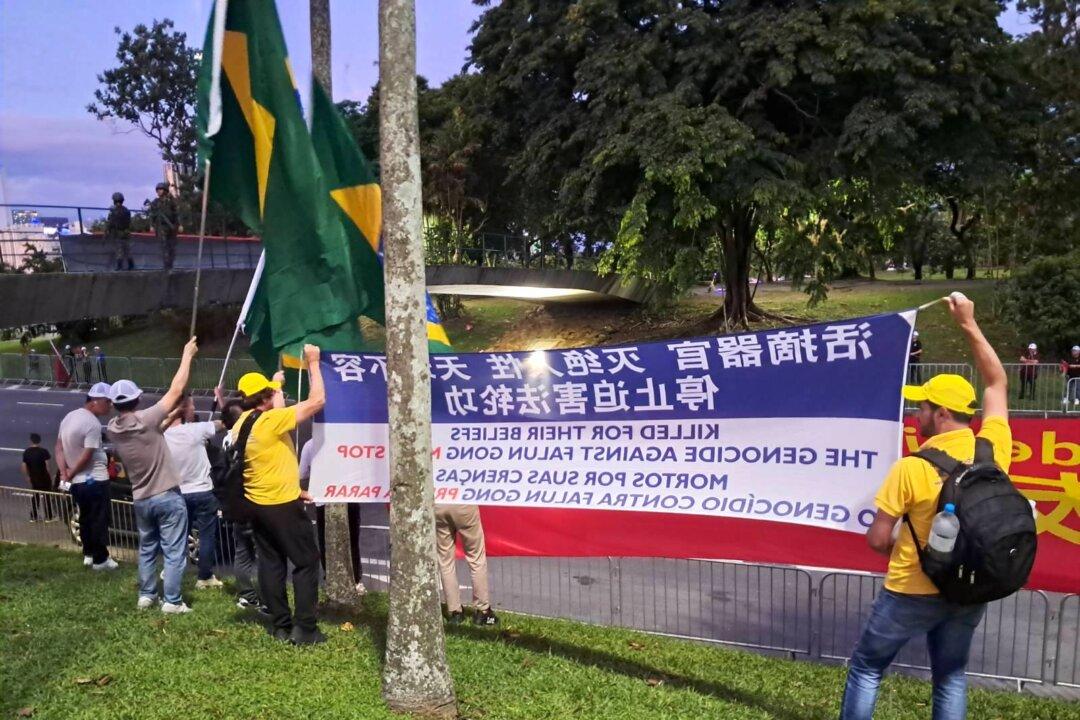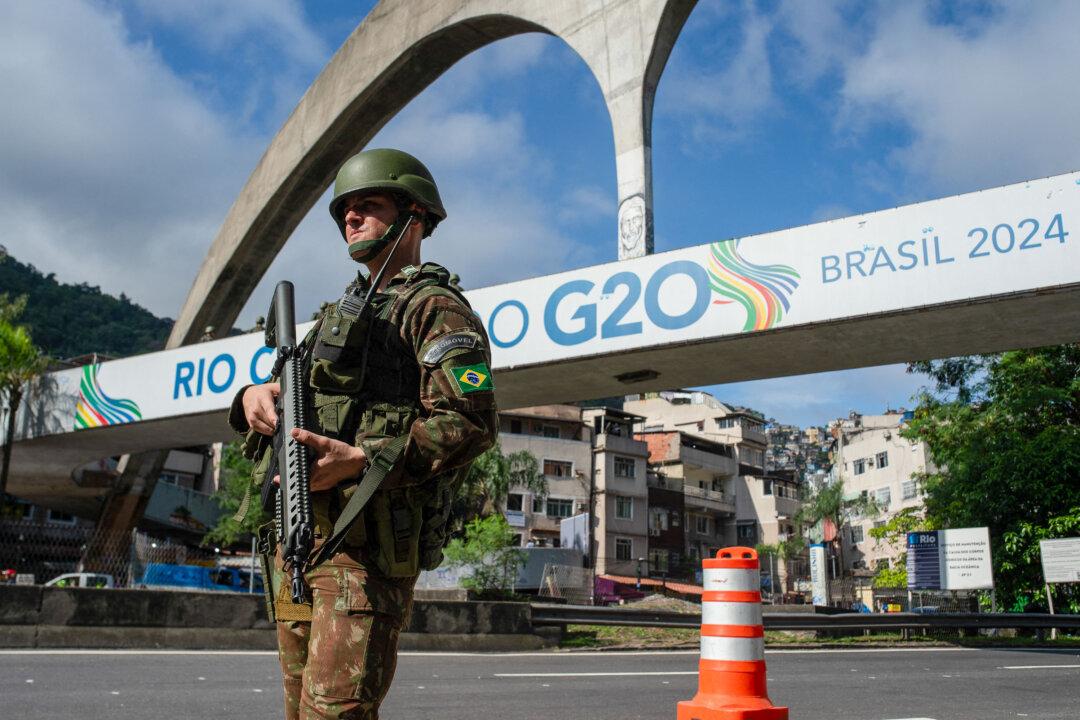Two years after the Jan. 6, 2021, Capitol breach sent shockwaves throughout the United States that continue to this day, Brazil’s main government institutions were breached in eerily similar events. The Jan. 8, 2023, Brazilian riots also happened after right-winger Jair Bolsonaro, nicknamed the “Trump of the Tropics,” lost elections amid claims of irregularities and supporters’ protests eventually turned violent under widely disputed circumstances.
In the past year, many of the same issues—such as the role of media, political bias, and weaponization of government—continue in Brazil, as they have in the United States since Jan. 6.
